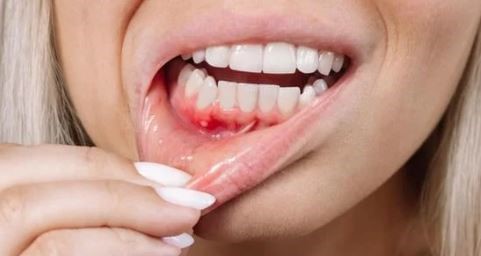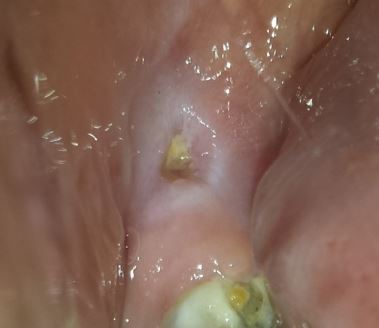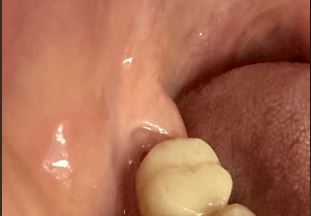The hole in gums may seem insignificant as long as they do not cause discomfort in the initial stage, but they can become uncomfortable due to infections that may occur over time. In medicine, such gum hole disorders are called periodontal disease or gum disease. These problems should not be seen only as gum and tooth problems, if the discomfort persists for a long time, it is necessary to be examined by a dentist because such dental diseases can be symptoms of more serious medical problems that require urgent intervention.

By identifying the causes, symptoms, diagnosis, and treatment of a gum hole early on and providing effective treatment, it is possible to prevent problems that can be extremely problematic later.
Why do I have holes in my gum?
The formation of holes in the gums can be caused by various reasons:
- Gum Disease:This is periodontal disease that damages the soft tissue of the gums and tooth bone and is one of the most common causes.
- Abscesses are caused by infections that form as pus in the gums or in the space between the gums and teeth.
- Injury: A hole in the gums can occur as a result of rough brushing or a blow to the mouth area.
- Tooth Extraction: After a tooth is extracted, a hole will naturally form at the extraction site. If the extraction site is not cared for, this hole can become infected and turn into a gum hole.

Symptoms of hole in gums
The formation of a gum hole may also result in the following symptoms:
- Persistent discomfort or pain,
- Inflammation around the gums,
- Bleeding while tooth cleaning or flossing,
- Bad breath or an unpleasant aftertaste,
- Visible pus around the affected area
- Loosening of the teeth
Diagnosis of hole in gums
There are some ways to treat gum holes: take good care of your teeth by brushing and flossing; get a professional teeth cleaning; take antibiotics if there are infections; and have surgical procedures if necessary.

Prevention of hole in gums
Maintaining proper oral hygiene and scheduling routine dental examinations are key factors in preventing gingival caries. For this purpose, brushing should be done at least twice a day, flossing should be used at least once a day, gargling with antiseptic or salt water should be taken care of, and smoking should be reduced or even quit as much as possible.
A hole in the gum is a treatable condition, but early intervention is needed to prevent complications such as tooth loss and more serious infections. By performing regular oral and dental care, the risks of such diseases can be significantly reduced. If you notice any symptoms, we recommend that you visit your dentist immediately.
For more detailed information, please contact us or visit us at our dental clinic.
